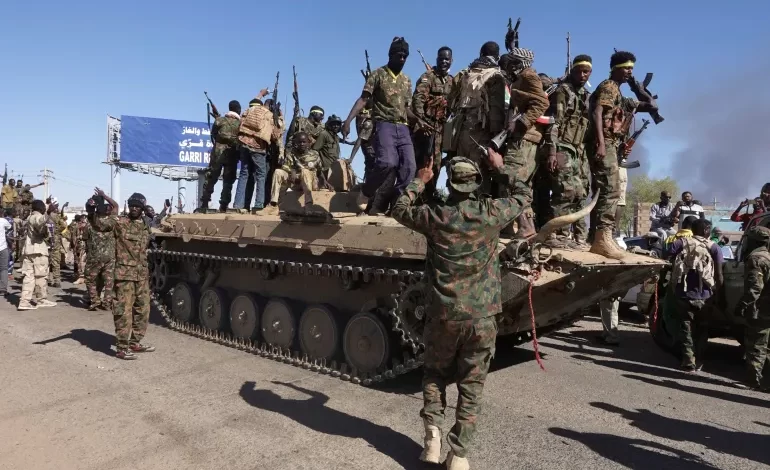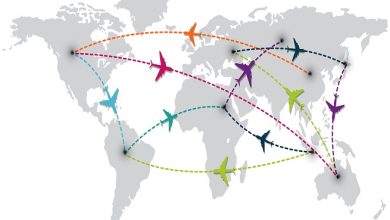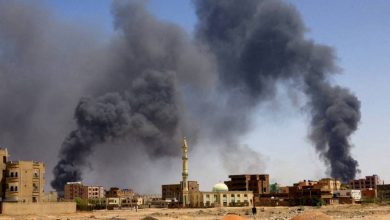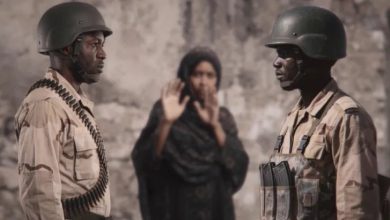Six Points Explaining the Motives Behind Washington’s Accusation of Sudan Using Chemical Weapons

In January, The Washington Post published a highly sensitive report quoting claims from four senior U.S. officials that the Sudanese Armed Forces used chemical weapons at least twice against the Rapid Support Forces (RSF) in remote areas of the country. The U.S. has previously accused the RSF of committing acts of genocide.
According to an article by Mohamed Bin Omar on the American platform Medium, the major newspaper report did not provide any tangible evidence. It mentioned no independent investigations, verified field assessments, or scientific data to support the allegations.
At the time, the story passed with notable international silence. However, more than four months later, Washington began imposing official sanctions on Sudan. This sequence—leaking to the media, applying political pressure, then enacting sanctions—bears the hallmarks of a carefully crafted geopolitical strategy.
1. Where is the Evidence?
The first and most basic question, as the article highlights, is: where is the evidence? Did any independent international committee visit the alleged attack sites? Were soil samples or biological residues collected and analyzed by neutral experts? Were impartial humanitarian organizations allowed access for investigations?
The answer, according to the article, is no. None of these steps were taken. Instead, the international community is expected to accept these serious allegations based solely on unverified anonymous sources. The use of chemical weapons is a grave accusation that demands far more than media speculation. It requires scientific rigor and legal due process.
The article argues that such allegations have historically been used to justify foreign interventions, regime changes, and the dismantling of national armies—as seen in Iraq. Sudan now appears to be heading toward a similar geopolitical fate.
2. Ignored Context
The report asserts that the Sudanese conflict is not between equal actors. Rather, it involves a sovereign state fighting against a rogue militia—RSF—which has committed war crimes, displaced millions, and besieged cities. Despite this, a narrative is being pushed that vilifies the national army while downplaying militia atrocities.
The author clarifies that this is not a defense of any one side, but a call to uphold Sudan’s sovereign right to justice, dignity, and self-determination.
If there is credible evidence of chemical weapon use, it should be scrutinized through a transparent and impartial international investigation, under the oversight of the United Nations or the Organisation for the Prohibition of Chemical Weapons (OPCW).
Imposing sanctions based solely on a media leak is not justice—it is a dangerous precedent of politicized international law.
3. Escalating U.S. Measures
On May 22, the U.S. officially imposed sanctions on Sudan, citing violations of the 1991 Chemical and Biological Weapons Control and Warfare Elimination Act. These sanctions, set to take effect on June 6 after congressional notification, include:
Banning certain U.S. exports to Sudan
Imposing restrictions on access to U.S. government loans and credit guarantees
Officially accusing Sudan of violating its commitments under the Chemical Weapons Convention
These follow earlier personal sanctions against General Abdel Fattah al-Burhan, head of Sudan’s Sovereign Council and commander-in-chief of the army, based on allegations of targeting civilians and using starvation as a weapon of war.
4. Escalation Strategy
The current measures may only be the beginning. The author outlines possible future U.S. pressure tactics:
1. Reinstating Sudan on the U.S. list of State Sponsors of Terrorism. Sudan was removed from the list in December 2020 after agreeing to pay over $300 million in compensation to alleged terrorism victims and beginning normalization with Israel.
2. Pushing for a UN Security Council resolution under Chapter VII, potentially leading to a global arms embargo or worse.
3. Coordinating with the EU to impose parallel sanctions.
4. Pressuring regional allies to withdraw support from the Sudanese army.
This multi-pronged strategy aims to erode the Sudanese army’s operational capacity and political legitimacy through sustained international pressure.
5. Anticipated Global Responses and a Widening Stage
In addition to U.S. sanctions, other global and regional actors are likely to follow suit:
The OPCW may call for an independent investigation and consider suspending Sudan’s membership.
The European Union may align with Washington, as it has in similar cases against Syria and Russia.
The UN Security Council might readdress Sudan as a “threat to international peace and security.”
The African Union could adopt harsher stances in light of potential international condemnations.
The International Criminal Court might reopen its Sudan case and add new names to its list of indicted war criminals.
These steps, if enacted, could deepen Sudan’s international isolation and entrench its ongoing political paralysis.
6. A Calculated Pressure Campaign
The article concludes by asserting that what is unfolding is not a pursuit of justice but a calculated effort to reshape Sudan’s political system through deliberate pressure and isolation. Allegations of chemical weapons use are being leveraged as a pretext to impose sanctions, delegitimize national institutions, and shift the balance of power.
This is a clear implementation of the “carrot and stick” strategy—depriving the Sudanese army of arms, while exerting economic and diplomatic pressure to force acceptance of externally imposed political solutions, regardless of national interests or popular will.
The approach mirrors past strategies used in Iraq after the Gulf War and post-Gaddafi Libya, where economic strangulation and political isolation were used to force compliance, ultimately leading to state fragmentation.
In Sudan’s case, such a strategy risks exacerbating internal divisions, prolonging humanitarian suffering, and destabilizing the broader region.
What is needed instead is an impartial, internationally supervised investigation, respect for Sudan’s sovereignty, and a genuine commitment to peace and justice—not regime change.
Source: American Press



